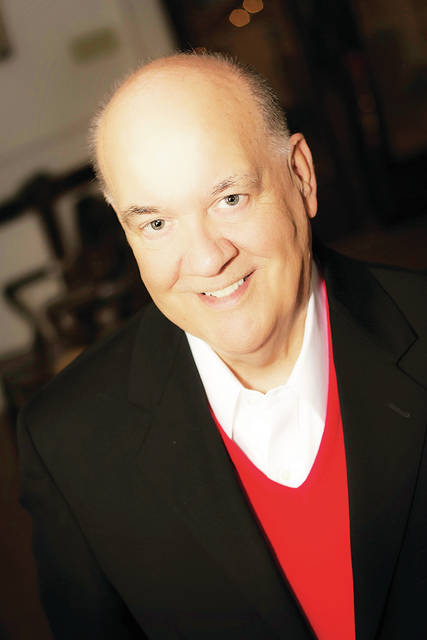
It was a dark time.
In early 1940, Hitler had invaded France and Belgium, who were now on the cusp of surrendering. Simultaneously, every periscope and bombsight of the German Navy and Army were trained on the small island across the England Channel, a meager 21 miles from France at its closest distance.
The German Army was marching through Europe at an alarming rate. The Battle of Britain was about to begin.
In May 1940, Americans throughout the United States turned their RCA and Motorola radios on to listen as Britain’s new Prime Minister, Winston Churchill, delivered his first speech in his new role.
They listened intently.
On the stroke of 9 p.m. Churchill came on the radio. “I speak to you for the first time as Prime Minister in a solemn hour for the life of our country, of our Empire, of our allies, and, above all, for the cause of Freedom. A tremendous battle is raging in France and Flanders,” he said.
Now, almost 78 years later, the movie, “The Darkest Hour”, playing at the Wilmington theater, captures the essence of the 1940s in England.
The movie is well written.
King George VI of England speaks to Prime Minister Winston Churchill: “Perhaps it is because you scare people. One never knows what is going to come out of your mouth next. Something that will flatter, or wound.”
Churchill replies, “My emotions are unbridled. A wildness. In the blood. I share it with my father. Mother also. We lack the gift of temperance.”
George VI asks, “Were you close to your parents?”
The Prime Minister says delicately, “My mother was glamorous. But perhaps too widely loved.”
This drew a rise of the eyebrow and a smile from the king.
He cannot help but like this man.
The British Parliament, as well as, the British people, had lost confidence in their former Prime Minister, Neville Chamberlain. Churchill succeeded him, but was being hindered by the leaders of both parties. They wanted Churchill to begin peace talks with Italy’s Benito Mussolini.
But Churchill abhorred Hitler, and Mussolini, and defied a good many politicians in the British Parliament. Achieving victory was Churchill’s overarching goal.
The war, Churchill, and Hitler were times and people I had only read about in history books, but the history became real to me one afternoon in Dayton, Ohio.
After graduation from high school, I enrolled in the St. Elizabeth Hospital School of Radiologic Technology to study x-ray technology. One of the doctors of radiology and an instructor there was Dr. Konrad Kircher. Dr. Kircher was born in Lauingen, Germany. He was a brilliant man, and later became the sponsor of the resolution calling for the banning of tobacco use, which was eventually adopted by the American Medical Association.
A man of experience, he had another story to tell, which he shared one afternoon with me. “When I turned sixteen years of age, a tragedy struck me. I was forcibly drafted into the German Army during the later stages of World War II,” he said. “I had no choice. If I didn’t go, Hitler would have had me killed.”
Dr. Kircher described the hardships of the war for a young man, actually a boy. He said he deliberately fled the meaningless killing on the Russian Front, with the aim of getting captured by the advancing U.S. troops.
After the war ended, Dr. Kircher said he wasted no time in putting the traumatic experience behind him. He would later write a book, “Hitler’s Unwilling Soldier,” published in Germany in 2001.
The atrocities by Hitler and the German armies, like those imposed on Dr. Kircher, were sweeping throughout Europe.
Prior to taking office, Churchill watched as then Prime Minister Neville Chamberlain spoke to the deeply divided House of Commons.
According to historians, on Saturday, September 2, 1939, then acting leader of the Labour Party, Arthur Greenwood, rose in the House of Commons to respond to the ill-judged, vacillating speech by Prime Minister Chamberlain, who had resisted the call for war even after Adolf Hitler’s armies had swept into Poland the day before.
The frenetic atmosphere was palpable. The Members of Parliament were desperate for leadership at a time of supreme hopelessness.
“Speak for England, Arthur!” was the dramatic plea from the Tory veteran Leo Amery.
The tall, thin, 60-year-old Yorkshireman, a popular figure, rose magnificently to the occasion. He spoke passionately, off-the-cuff, and captured the mood of the nation. “We must march with the French,” he urged. “The moment we look like weakening, at that moment dictatorship knows we are beaten. We are not beaten. We shall not be beaten.”
Few were called upon to “Speak for England” – Churchill did many times, of course, but
Arthur Greenwood did, too, on that warm, tense evening in Westminster in September 1939.
It was his finest hour.
Pat Haley is a Clinton County Commissioner.


